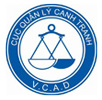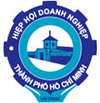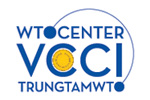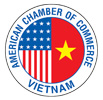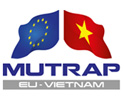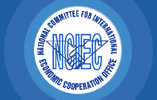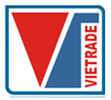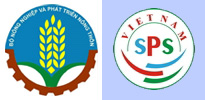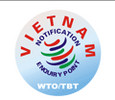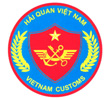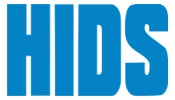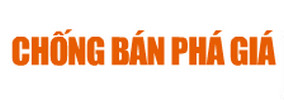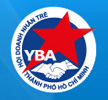
The market of Muslim countries is a potential market with the demand for Halal products (standard products and services for Muslims) increasing rapidly while the supply is in deficit. However, the number of Vietnamese products entering the Muslim market is too small.
Halal products for export are modest
According to the Organization of Islamic Cooperation (OIC), in 2022, Muslims have spent US $ 2 trillion on food, clothing, travel, pharmaceuticals and lifestyles based on ethical consumption needs inspired by the Islamic faith. This spending is expected to reach US $ 2.8 trillion in 2025. Islamic financial assets worldwide are estimated to reach US $3.6 trillion in 2022 and are expected to grow to US $4.9 trillion by 2025.
Mr. Ramlan Osman, Director of the Vietnam Halal Center said that the potential of the global Halal economy is huge. Vietnam has the potential to produce Halal goods worth up to US $34 billion for OIC countries. However, at present, Vietnamese domestic enterprises can only partially meet the needs of OIC members. Because to bring products into Muslim countries, businesses must have Halal certification for their products.
Specifically, to access the Muslim market, Vietnamese exporters must have Halal certification authenticated by the competent authority. Halal certification is even more complicated than other certifications due to the inconsistent testing process. There is no unified international organization that issues Halal certification. Instead, each country has its agencies. Therefore, the product must meet the regulatory standards of the country of manufacture and the receiving country. For this reason, businesses also face many difficulties in meeting Halal certification requirements.
Mr Tran Phu Lu, Deputy Director of the Investment and Trade Promotion Center of Ho Chi Minh City (ITPC), said that due to the difficulties and strict regulations of Halal standards for products of animal origin, products of animal origin. Vietnam's export halal products are mainly agricultural products, input materials for some industries such as beverages, etc. This is also why about 41% of Vietnamese localities do not have Halal-certified export products. Vietnam's export products to traditional Halal markets in Southeast Asia, South Asia, the Middle East, and North Africa are mainly agricultural and aquatic products, but in raw and semi-processed form and account for a small proportion of the total structure export items. At the same time, Vietnamese businesses often focus on two close markets, Indonesia and Malaysia. Meanwhile, few businesses know that India is the second largest potential Halal market in the world in terms of population size, with more than 170 million Muslims out of a total population of more than 1.4 billion. The reason is that accessing the market with differences in culture and customs is a challenge for Vietnamese businesses.
Taking in advanced
Sharing about this special market, Mr Diep Nam Hai, General Director of Cholimex Food Joint Stock Company (Cholimex Food), said that some partners from Muslim countries are currently looking for brand suppliers with standards for your community. This has opened up the opportunity to conquer the Muslim community market in the world for businesses. In early 2023, Cholimex Food had batches of spice products that were exported to Indonesia and Brunei for the first time, becoming a stepping stone for businesses to access the Muslim market.
However, do not miss the beat in accessing the Halal market. It is necessary to support the collective economic sector and cooperatives in certifying Halal standards because there are currently no specific standards for standardizing the Halal certification model. Accompanying that is that very few units stand out to support Halal-certified cooperatives and businesses.
Mr Le Chau Hai Vu, Director of Consultech JSC, said that Halal standards and regulations are increasingly strict, Halal certification is not valid forever, and not equally recognized in all countries with all items. This is costly for cooperatives and businesses because they must re-certify many times and, based on each export market, register for certification accordingly.
In addition, for the cooperative's products to come closer to the Halal market, experts suggested that in the coming time, it is necessary to promote bilateral and multilateral cooperation and sign agreements on mutual recognition in the field of Halal area. Increasing the attraction of foreign investment to build Halal product production facilities up to international standards, supporting connecting Vietnamese businesses with prestigious Halal certification organizations and partners worldwide.
On February 14, 2023, the Prime Minister issued a Decision approving the project "Strengthening international cooperation to build and develop Vietnam's Halal industry until 2030", chaired by the Ministry of Foreign Affairs. This first project sets out a major national orientation on mobilizing international resources to build and develop the Vietnamese Halal industry methodically, professionally and comprehensively, helping Vietnamese businesses participate deeply and effectively in the global Halal product supply and production chain. The project creates a new direction in implementing economic diplomacy for development, helping to open a potential Halal market with a scale of up to US $10 trillion worldwide by 2028 and creating more dynamics. A new force for the sustainable economic development of our country, especially when traditional markets face many difficulties due to inflation and economic recession.
Source: VCN
Keywords: businesses, advantages, Islamic market, export



